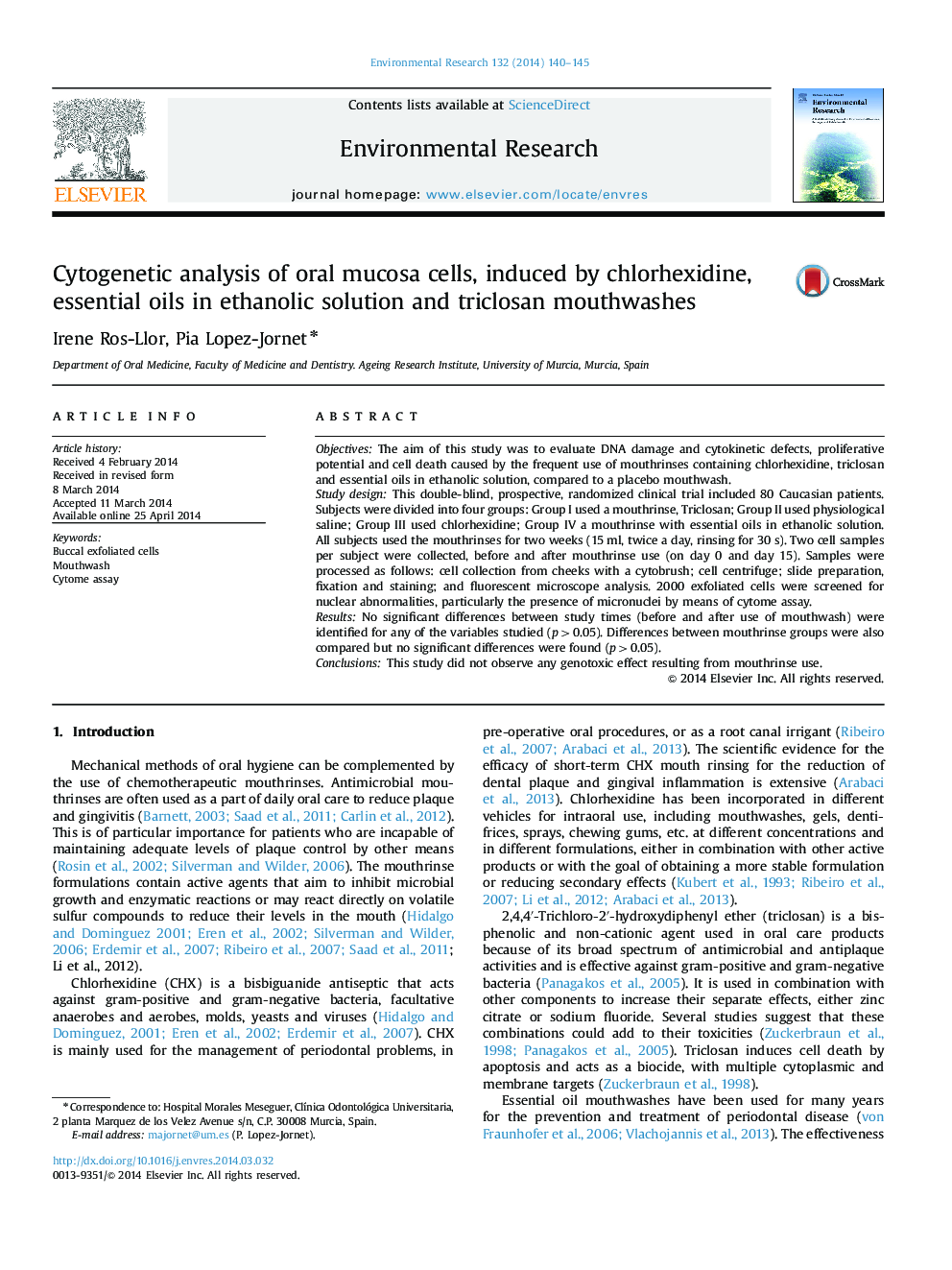| Article ID | Journal | Published Year | Pages | File Type |
|---|---|---|---|---|
| 6352932 | Environmental Research | 2014 | 6 Pages |
â¢Mouthrinses are used widely, mainly for their capacity to control dental plaque.â¢No genotoxic effects from the mouthrinses triclosan, chlorhexidine essential oils solution.â¢The buccal cytome assay is a sensitive, non-invasive, and low cost technique.
ObjectivesThe aim of this study was to evaluate DNA damage and cytokinetic defects, proliferative potential and cell death caused by the frequent use of mouthrinses containing chlorhexidine, triclosan and essential oils in ethanolic solution, compared to a placebo mouthwash.Study designThis double-blind, prospective, randomized clinical trial included 80 Caucasian patients. Subjects were divided into four groups: Group I used a mouthrinse, Triclosan; Group II used physiological saline; Group III used chlorhexidine; Group IV a mouthrinse with essential oils in ethanolic solution. All subjects used the mouthrinses for two weeks (15Â ml, twice a day, rinsing for 30Â s). Two cell samples per subject were collected, before and after mouthrinse use (on day 0 and day 15). Samples were processed as follows: cell collection from cheeks with a cytobrush; cell centrifuge; slide preparation, fixation and staining; and fluorescent microscope analysis. 2000 exfoliated cells were screened for nuclear abnormalities, particularly the presence of micronuclei by means of cytome assay.ResultsNo significant differences between study times (before and after use of mouthwash) were identified for any of the variables studied (p>0.05). Differences between mouthrinse groups were also compared but no significant differences were found (p>0.05).ConclusionsThis study did not observe any genotoxic effect resulting from mouthrinse use.
